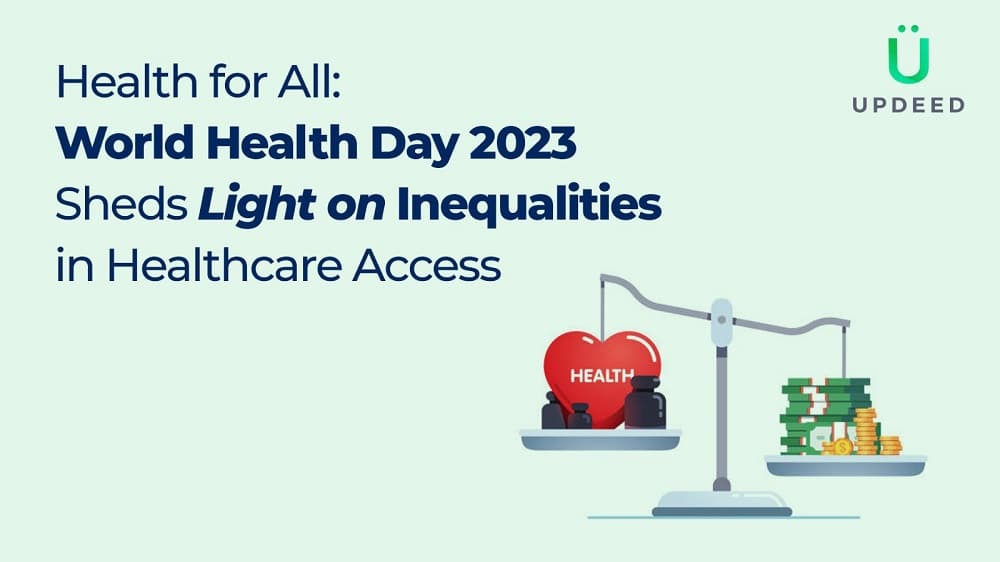Health for All: World Health Day 2023 Sheds Light on Inequalities in Healthcare Access
Every year on April 7th, the World Health Organization (WHO) celebrates World Health Day to raise awareness about health issues affecting people all around the globe.
The theme for World Health Day 2023 is “Health For All”. The focus is on the inequalities in healthcare access and outcomes across different regions, social groups, and demographics and the need to work towards achieving health equity for all.

The brief history
To discuss World Health Day, it is important to delve into the creation of the World Health Organization. In December 1945, officials from Brazil and China jointly proposed the formation of a global health organisation that would operate completely independently from any national government.
Following this proposal, the constitution of the World Health Organization was approved in July 1946 in New York City. On April 7, 1948, the constitution went into effect as 61 nations signed on establishing the NGO.
One of the initial actions taken by the WHO was the establishment of World Health Day. Although it was first observed on July 22, 1949, the date was later changed to April 7 in honour of the organisation’s founding to encourage student involvement.
Health for all
Health equity means everyone can attain their full health potential, regardless of their social, economic, or geographic circumstances. Unfortunately, this is not the case for many people in the world. The COVID-19 pandemic has highlighted the deep-rooted health inequalities in many countries, with marginalised communities bearing the brunt of the pandemic’s impact.
The pandemic has exposed the vulnerabilities of healthcare systems worldwide. Still, it has also
shown the resilience and dedication of healthcare workers who have been working tirelessly to save lives and prevent the spread of the virus. World Health Day 2023 is an opportunity to recognise their efforts and to advocate for fairer and more equitable healthcare systems.
Access to healthcare is a fundamental human right, yet millions of people worldwide do not have access to essential health services. According to the WHO, at least half of the world’s population lacks access to essential health services, and one in three people globally does not have access to basic sanitation facilities. These inequalities are even more pronounced in low-income countries, where people face barriers such as poverty, lack of education, and inadequate infrastructure.
The WHO has identified several key areas where the action is needed to achieve health equity, including:
- Improving access to essential health services: This includes ensuring that everyone has access to basic healthcare services, such as immunisations, family planning, and essential medicines.
- Addressing social determinants of health: Health is shaped by many social, economic, and environmental factors. Addressing these factors, such as poverty, unemployment, and air pollution, can improve health outcomes and reduce health inequalities.
- Strengthening health systems: Health systems need to be well-funded, well-
- equipped and well-staffed to provide quality healthcare services to everyone. This includes training and supporting healthcare workers, improving health infrastructure, and ensuring the availability of essential medicines and medical equipment.
- Tackling emerging health challenges: Health challenges such as pandemics, antimicrobial resistance, and climate change require global cooperation and action to address.
- Empowering individuals and communities: People should have access to accurate and reliable health information and be able to make informed decisions about their health. Communities should be involved in decision-making processes that affect their health.
On World Health Day, we are reminded of the urgent need to address health inequalities and to work towards achieving health equity for all. This requires a collective effort from governments, healthcare providers, civil society, and individuals. By working together, we can build a fairer, healthier world.
The day is an opportunity to recognise the importance of health equity and to advocate for fairer and more equitable healthcare systems. By addressing health inequalities, we can improve health outcomes and ensure that everyone has the opportunity to attain their full health potential.
The COVID-19 pandemic has shown us that health is a global issue. We must work together to
tackle emerging health challenges and empower individuals and communities to take charge of their health.
Ready to make a positive impact in the world?
UPDEED is the place for you. Our free and open platform is filled with inspiring stories from individuals and organizations who are making a difference in their communities and beyond. Connect and collaborate with like-minded individuals from around the globe on UPDEED, and discover your own potential to create meaningful change. Join our community and make a difference.





